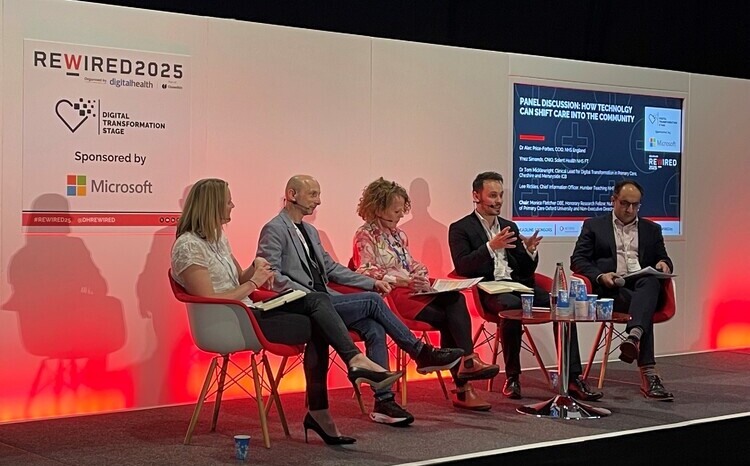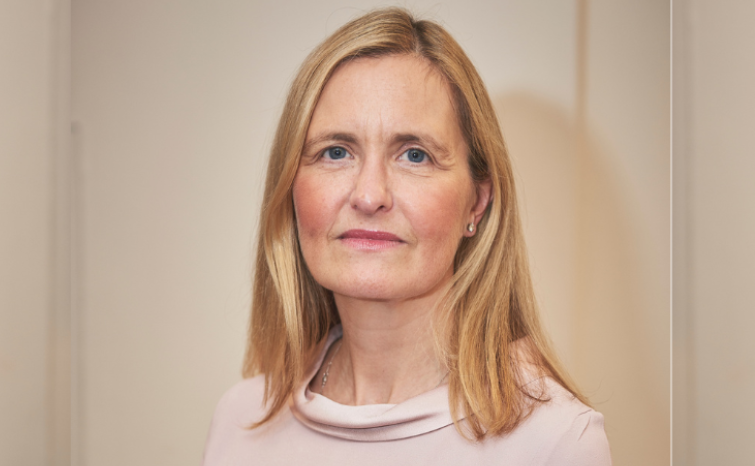Digital Health interview: Helen Waters
- 18 May 2016

Helen Waters is enthusiastic about what she describes as “a next generation [electronic patient record] system”; a web-based version of the Meditech EPR.
Stressing that it has been designed in conjunction with clinicians, the company’s vice president for sales and marketing describes the new platform as both “friendly and intuitive”; and underlines that it enables clinicians to use mobile devices to view patient records.
The web-EPR is already live across four sites in the US and Meditech is anxious to bring the product to the UK.
The company says moving to the new platform should involve a relatively minor upgrade for those of its existing customers that are already on Meditech v.6.0; and that there is a strong appetite for the mobile offering. However, Waters does not expect any new or existing customers to be using it until 2017.
The Rotherham
Meditech Information Technology was founded in 1969 and is based in Massachusetts. Over the years, it has expanded from the US to Canada and the UK, and several other countries. Across the world, it claims to have some 2,200 customers.
Meditech has been working in the UK for 25 years; where not all of its experiences have been happy. One of its first deployments of Meditech v6.0 was at The Rotherham NHS Foundation Trust, which went live in 2012 as part of a £21 million upgrade of its clinical systems.
This was held up as a bold break from the National Programme for IT and a bid to deliver significant efficiency savings ahead of the national push that became the ‘Nicholson Challenge’ and then the ‘Five Year Forward View’ agenda.
Unfortunately, the deployment ran into significant problems. These affected the booking of patient appointments and issues with clinician and staff acceptance and usability.
All of these contributed to an intervention by regulator Monitor in February 2013, after which The Rotherham decided to deconstruct parts of Meditech and use other systems in some areas. Since then, however, the trust has turned things around.
It completed an upgrade of its EPR in April 2015, and is no longer using TPP’s SystmOne in A&E. It was hoping to implement Meditech’s electronic prescribing and medicines administration module by April this year, but this has been put back.
A spokesperson told Digital Health News: “The trust has not yet deployed the EPMA module of Meditech as we are currently working on the business case. We also have other work streams, such as a ‘Rotherham Clinical Portal’, which have now taken priority.
“We are, however, hoping to roll these modules out within the trust by autumn 2016, although this will be dependent upon funding.”
Waters said there were particular challenges at Rotherham at an organisational level that had an impact on deployment of the EPR and the company now has a strong relationship with the trust. “We are excited about the turnaround and partnership with Rotherham,” she added.
She argued that an EPR implementation can quickly become the focus of attention when a trust is trying to make a significant change, especially when facing other challenges around finances, but feels Meditech “came out of it pretty well.”
Key NHS sites
Meditech has 35 customers across the UK, including a mix of NHS trusts and private providers. Some of its key sites include City Hospitals Sunderland NHS Foundation Trust and Alder Hey Children's NHS Foundation Trust, both of which have transitioned to v6.0 in recent years.
City Hospitals Sunderland moved off the ‘Magic’ version of the trust’s EPR that it had been using since 1992 in a ‘big bang’ go-live in June 2013.
The trust said at the time that it had benefited from the work done at The Rotherham to ‘anglicise’ the system and it now sits near the top of Digital Health Intelligence’s Clinical Digital Maturity Index (in ninth place, meaning it has almost all the systems captured by the index in place).
Alder Hey went live with its upgrade in October 2015, adding a variety of tools that it didn’t have in the process, such as e-prescribing, paperless referrals and early warning systems for patients. It now sits in 22nd position on the CDMI, which covers 151 acute trusts.
Burton Hospitals NHS Foundation Trust upgraded more recently, while Clatterbridge Cancer Centre NHS Foundation Trust is due to go-live with the latest version of Meditech at the end of May, after putting the go-live back from October last year.
Waters said the delay has been down to the trust’s desire “to get as much robust functionality as possible” out of the system at go-live.
In update notes emailed to Digital Health News, the trust confirmed this, saying that it was planning to replace four core systems – including the very old Hearts patient administration system and an existing e-prescribing system – and that it wanted to do this in one go.
“Moving from a ‘best of breed’ approach to a single, integrated EPR will, over time, once fully implemented, provide a more seamless user experience for our clinical staff, more efficient workflow processes and advanced clinical decision support,” the notes added. “All patient information will be in once place, and it will be more accessible for users.”
Global trends
Waters said the way healthcare is moving in the UK reflects global trends towards providing more care in the community and better integration between health and care systems.
“We are seeing interest in the market in the further deployment of clinical solutions; e-prescribing care pathways and better clinical decision support. Also stronger tools for analytics to understand who is under the care of the organisation, what kind of disease states they are in, and how to engage them in their care.”
She said the first step towards understanding a patient population is an electronic patient record. But it is also important to have a health registry to allow clinicians to search the database for particular patients, such as those with a certain condition, so they can make sure all their care needs are being met.
When it comes to engaging patients in their care, Alder Hey has licensed Meditech’s patient portal product that is in use in the US, but has not yet deployed it.
The portal allows patients to see and request their own appointments and secure communication with their consultants, as well as viewing their records, all on mobile devices. Patients will also be able to import data from their personal health devices.
UK prospects
Waters said Meditech is “excited about the direction the NHS is headed in”, with comments from health secretary Jeremy Hunt about the government’s commitment to digitisation giving it “encouragement”.
Hunt set the initial challenge for the NHS to become ‘paperless’ back in 2013, and more recently announced a £4.2 billion investment in NHS technology over the next five years. This will include £1.8 billion to push on with the paperless agenda, which was set for 2018 and is now slated for 2020 or 2021.
Exactly how this will be distributed has yet to be announced; and it looks as if a lot will be riding on the local digital roadmaps that healthcare communities are drawing up. These are meant to align with the wider sustainability and transformation plans that are supposed to deliver the Forward View.
But concerns over NHS finances are, if anything, becoming more acute; just as social care budgets continue to be cut. Despite these uncertainties, Gina Kerley, international sales director for Meditech, says the current UK market is not the worst she has experienced.
“Sometimes, when an announcement of funding is pending it can freeze the market a bit, but I think the real thing is there are executives that know they have got to move forward with this and find the money,” she says.
A number of trusts are procuring via the various frameworks currently available and she says they are focusing heavily on benefits. “I see a lot of requests for benefits information, providing case studies,” Kerley adds.
“When the National Programme for IT was in effect there were a lot of promises made, and trusts waited for their turn – which often didn’t come. The strong, independent trusts are still looking for solutions. There’s no lack of desire to improve systems and outcomes. And if there is strong executive leadership, they will find the money.”
Waters adds that there is a benefit to this process, because it takes strong leadership and vision and the involvement of executives and consultants in partnership to get software deployed in a meaningful, impactful way.
And: “When it’s well deployed, you can start to demonstrate more case studies for building the clinical business case for why these investments make sense.”




